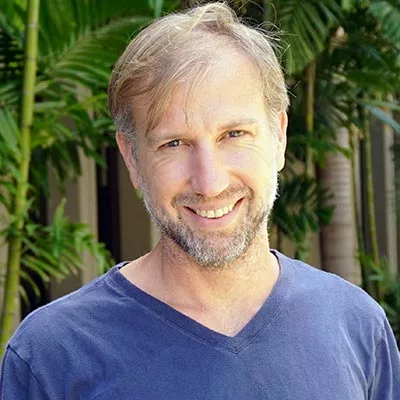The Office for Evaluation and Needs Assessment Services
The Office for Evaluation and Needs Assessment Services (OENAS) conducts program evaluation and needs assessment research primarily for public and private non-profit agencies and organizations. The Office provides continuing education and training, technical assistance and consultation, and opportunities to work with a multidisciplinary team on evaluating complex, multi-site projects and programs.
Professional and Experienced Staff
- Faculty from diverse disciplines with extensive experience in program evaluation and applied research
- Experienced and professional support staff provide timely and responsive administrative support
- Graduate students experienced in research design, including sampling and survey methods, quantitative and qualitative data analysis, proposal and report writing, and other research-related support (supervised by faculty)
Services
- Evaluation and Needs Assessment Services with emphasis on public and private non-profit programs such as substance abuse, STEM programs, criminal justice, education, health disparities, mental health, social and health services, and capacity-building in research.
- Continuing Education and Training tailored to meet the needs of professionals.
- Technical Assistance and Consultation to service providers and principal investigators on research techniques and strategies, assistance in grant writing, budget formulation, project implementation, and the application of research findings.
Frequently Asked Questions
What is program evaluation?
Program evaluation is the systematic investigation of the worth or merit of a program, project, or process. It is often undertaken to demonstrate the effectiveness of a program or to improve upon its delivery as it is being implemented. Ideally, evaluation is a collaborative process in which evaluators work closely with program staff to plan and implement an evaluation that is responsive to the needs of the program.
How does the investigation take place?
The investigation can include activities such as observing, surveying, interviewing, testing, experimenting, measuring, or analyzing information from people or existing documents. The information is then written up in a report from the evaluator to the client.
Two types of evaluation are commonly discussed: formative and summative.
- Formative Evaluation (also referred to as Process Evaluation): Investigates processes, program development, or program implementation. Results from the formative evaluation are shared early on or throughout the execution of the program, and are typically used to make changes in how the program is structured or carried out.
- Summative Evaluation (also referred to as Outcome or Impact Evaluation): Investigates the final effectiveness, outcome, results, or impacts of a program.
How much does it cost to do an evaluation?
Evaluation need not be costly, but should be adequately funded in order to address the questions that decision-makers are interested in. Although fees can be and are often negotiated, it is recommended that 5-15% of the program budget be devoted to evaluation. Most of these costs are in personnel, since it does require experienced professionals to effectively plan, execute and report on the results of the investigation.
How do we find an evaluator?
There is a professional association of evaluators in Hawai’i called the Hawai’i-Pacific Evaluation Association (H-PEA Members). A short description of your evaluation needs can be sent to the entire listserv (see the H-PEA website for information on how to do this). For additional referrals, feel free to call or email us at the contact information provided on this website. The national American Evaluation Association also maintains a list of evaluators from all states, including Hawai’i.
At what point should I contact an evaluator if my program requires an evaluation?
We strongly advise that you contact and include an evaluator in the initial stages of program planning or proposal development. The evaluator can provide sound advice and recommendations on how the proposal is crafted, and/or how the program should be executed. Nevertheless, many evaluators will do their best to work with you and your program even if the time period is limited.
OENAS Portfolio
- Evaluation of Local to Global Science, Service Learning, and Community Sharing in North Hawaiʻi. NOAA award to Malama Kai Foundation (Elizabeth Pickett, P.I.) August 1, 2017- July 31, 2018.
- Evaluation of REU Site: Earth Science on Volcanic Islands. NSF award to UH Department of Geology and Geophysics (Paul Wessel, P.I.) January 1, 2016 – December 31, 2020.
- Evaluation of Broaden Participation of Native Hawaiians for Engineering Faculty
NSF award to UH College of Engineering (Oceana Francis, P.I). October 1, 2015 – September 30, 2018. - Evaluation of C-STEM (Cultural – Science, Technology, Engineering and Math):
Professional Development for the DOE’s Kūpuna Program. NOAA award to UH Hawaiʻi Coral Reef Initiative (Michael P. Hamnett, P.I.) August 1, 2015 – January 31, 2017. - Evaluation of KEIKI TO KUPUNA: Smart investing@your library. FINRA award to the Hawaiʻi State Public Library System. (Friends of the Library of Hawaii, contractor) February 2, 2015 – June 30, 2016
- Evaluation of the Hawaiʻi IDeA Network for Biomedical Excellence (INBRE). NIH Award to the John A. Burns School of Medicine (Robert Nichols, P.I.). August 1, 2013 – April 30, 2015.
- Evaluation of RCMI. NIH G-12 award to the John A. Burns School of Medicine (Marla Berry, P.I.) September 16, 2011 – September 15, 2017.
- Evaluation of RMATRIX. NIH grant to the University of Hawaiʻi John A. Burns School of Medicine (Jerris Hedges, P.I.) September 16, 2010 – June 30, 2015.
- Eco-DAS: Ecological Dissertations in the Aquatic Sciences. NSF award to UH Mānoa (Paul Kemp, P.I., SOEST), February 2008 – March 2019.
- Kaiāulu STEM (Native Hawaiian Science Technology, Engineering, and Mathematics). U.S. Department of Education grant to the University of Hawaiʻi College of Engineering (Josh Kaakua, P.I.). August 8, 2011 – July 31, 2014.
- Undergraduate Research Mentoring: Environmental Biology in the Pacific Islands. NSF award to the Pacific Biosciences Research Center (Mike Hadfield, P.I.). 2008 – 2012.
- Evaluation of a Partnership for Advanced Marine and Environmental Science, NSF award to the Pacific Biosciences Research Center. (Robert Richmond, P.I.). 2011 – 2012.
- State/Tribal Youth Suicide Prevention Grant: Hawaiʻi Gatekeeper Training. SAMSHA award to the Hawaiʻi Department of Health (Eric Tash, P.I.). October 1, 2008- September 30, 2011.
- STEM Scholars Program: A Phase II Proposal to Grow, Extend, and Disseminate Native Hawaiian Excellence in Science and Engineering Higher Education. US Department of Education award to the UH College of Engineering (Josh Kaakua, P.I.), July 1, 2008 – June 30, 2011.
- Evaluation of PACMAN – Pacific Area Climate Monitoring and Analysis Network (EPSCoR Track 2). NSF grant to the University of Hawaiʻi (Jim Gaines, P.I.). September 1, 2009 – August 31, 2011.
- Evaluation of the Center for Microbial Oceanography: Research and Education (C-MORE). NSF grant to the School of Ocean and Earth Sciences and Technology, UH Mānoa (David Karl, P.I.). September 1, 2007 – August 31, 2011.
- Evaluation of the Hawaiian Biota and its Physical and Social Environment (EPSCoR). NSF grant to the UH System (James Gaines, P.I.). May 1, 2006 – April 30, 2009.
- Evaluation of Hawaii’s Supplemental Educational Services Program (SES). Hawaiʻi State Department of Education contract (Judith Inazu, P.I.) February 7, 2006 – September 30, 2010.
- Evaluation of Hawaii’s IdeA Networks of Biomedical Research Excellence (INBRE). NIH grant to the John A. Burns School of Medicine, University of Hawaiʻi at Mānoa (Lon White, P.I.), July 2004 – June 2010.
- Evaluation of Tech Together: A Proposal to Teach Hands-On Electronics to Native Hawaiian Families. U.S. Department of Education award to Partners in Development (Jan Dill, P.I.). October 1, 2006 – September 30, 2009.
- Evaluation of A Partnership for Advanced Marine and Environmental Science Training for Pacific Islanders (ATE). NSF grant to the Pacific Biosciences Research Center, UH Mānoa (Robert Richmond, P.I.). August 31, 2006 – August 30, 2008.
- Evaluation of the Native Hawaiian Science & Engineering Mentoring Program: A Proposal to Build Native Hawaiian Excellence in Science & Engineering Higher Education. U.S. Department of Education grant to the UH Mānoa College of Engineering (Tep Dobry, P.I.) October 2005 – September 2008.
- Evaluation of the Pacific Center for Emerging Infectious Diseases Research (COBRE). NIH grant to the John A. Burns School of Medicine, UH Mānoa (Richard Yanagihara, P.I.) September 25, 2006 – June 24, 2007.
- Hawai’i State – Biomedical Research Infrastructure Network (BRIN) Comprehensive Evaluation Plan. Pacific Biomedical Research Institute, University of Hawaiʻi at Mānoa. Funded by the NIH (Dean Smith, PI). August 2002 – August 2004.
- Report Card on Violence Prevention. Hawaiʻi State Department of Health (Judith Inazu, P.I.), August 2003 – August 2004.
- Maui Voices: 2003-2004 Maui Needs Assessment Study The County of Maui, Maui United Way, Hawaiʻi Community Foundation (Judith Inazu, P.I.). September 2003 – February 2004.
- Evaluation of the 2001 Public Housing Drug Elimination Program Housing and Community Development Corporation of Hawaiʻi. Funded by U.S. Housing and Urban Development (Judith Inazu, P.I.). May 2003 – September 2003.

Jack Barile
OENAS Director,
SSRI Interim Director

Nancy Marker
Academic Support